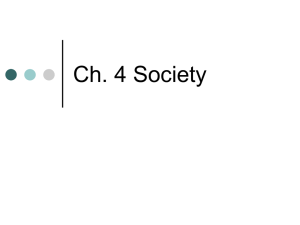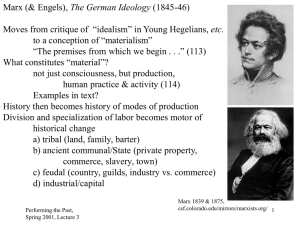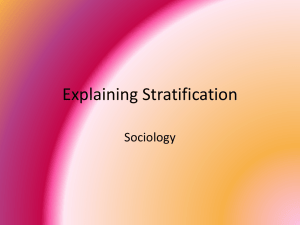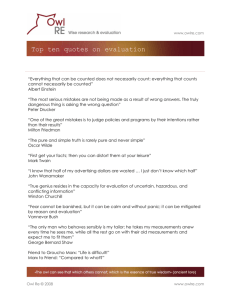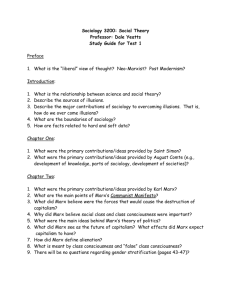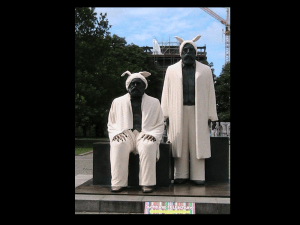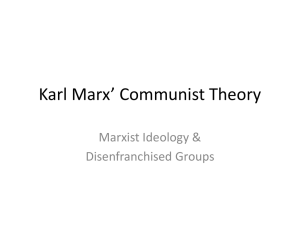Section 7: Smith, Marx and Facebook
advertisement
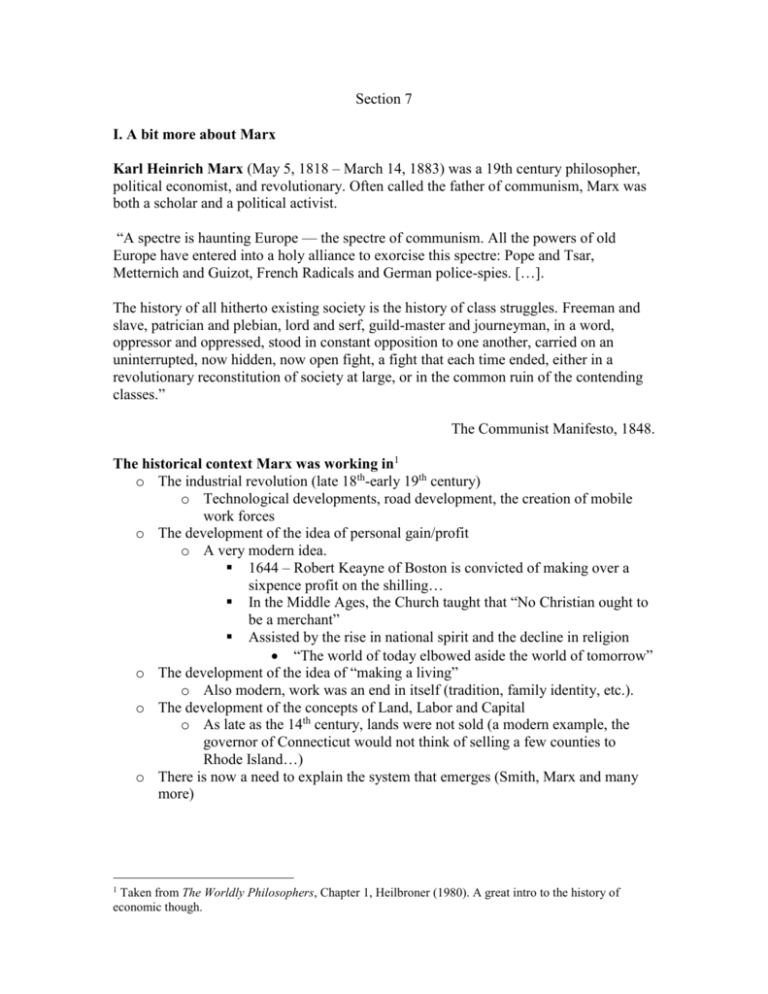
Section 7 I. A bit more about Marx Karl Heinrich Marx (May 5, 1818 – March 14, 1883) was a 19th century philosopher, political economist, and revolutionary. Often called the father of communism, Marx was both a scholar and a political activist. “A spectre is haunting Europe — the spectre of communism. All the powers of old Europe have entered into a holy alliance to exorcise this spectre: Pope and Tsar, Metternich and Guizot, French Radicals and German police-spies. […]. The history of all hitherto existing society is the history of class struggles. Freeman and slave, patrician and plebian, lord and serf, guild-master and journeyman, in a word, oppressor and oppressed, stood in constant opposition to one another, carried on an uninterrupted, now hidden, now open fight, a fight that each time ended, either in a revolutionary reconstitution of society at large, or in the common ruin of the contending classes.” The Communist Manifesto, 1848. The historical context Marx was working in1 o The industrial revolution (late 18th-early 19th century) o Technological developments, road development, the creation of mobile work forces o The development of the idea of personal gain/profit o A very modern idea. 1644 – Robert Keayne of Boston is convicted of making over a sixpence profit on the shilling… In the Middle Ages, the Church taught that “No Christian ought to be a merchant” Assisted by the rise in national spirit and the decline in religion “The world of today elbowed aside the world of tomorrow” o The development of the idea of “making a living” o Also modern, work was an end in itself (tradition, family identity, etc.). o The development of the concepts of Land, Labor and Capital o As late as the 14th century, lands were not sold (a modern example, the governor of Connecticut would not think of selling a few counties to Rhode Island…) o There is now a need to explain the system that emerges (Smith, Marx and many more) 1 Taken from The Worldly Philosophers, Chapter 1, Heilbroner (1980). A great intro to the history of economic though. Some important concepts to understand2 Historical Materialism – history evolves according to general tendencies, it is possible to predict future possibilities on the basis of past and present conditions. o Unlike Hegel - focuses on concrete experiences “democracy” is not an abstract system which is made concrete by enlightened people. The idea of “democracy” is made possible by a concrete set of material conditions. Whether it is realized depends on the material conditions Can one “bring democracy” to countries under this interpretation? If so, How? Existence precedes consciousness - consciousness is shaped (and determined) by material conditions. The way you develop is dependent on your external reality. o How is this different from “The American Dream”? o Is this closer to a rational or an empiricist view? The distinction between means of production and relations of production o Means of production - Things such as land, tools, natural resources, and technology that are necessary for the production of material goods. o Relations of production –The ways in which the means of production, resources, and the products themselves are owned and distributed. o Mode of production – the totality of the relations of production What determines the organization of society? o “The mode of production of material life conditions the general process of social, political and intellectual life. It is not the consciousness of men that determines their existence, but their social existence that determines their consciousness”. (Preface, A Contribution to the Critique of Political Economy, Marx) What changes over time is the mode of production Feudal system Capitalist system Alienation: giving up ownership of one’s own labor is like giving up on one’s capacity to transform the world. It results in alienation from one’s own nature. Commodity Fetishism o Commodities take “a life of their own” separate from the labor put into them (a pearl or a lump of gold is worth more than a horseshoe or a corkscrew, though they may involve the same amount of labor) For Marx, only labor has value o Surplus value – the difference between the value of the object and the cost of labor. This is how profit is made. Is Facebook good for social relations/interaction? Divide into two groups. One group has to argue that Facebook (as an example of an online social networking application) improves social relations. The second group has to argue that it harms our social relations. 2 A lot of the information come from: http://www.english.ilstu.edu/strickland/495/histmat.html
